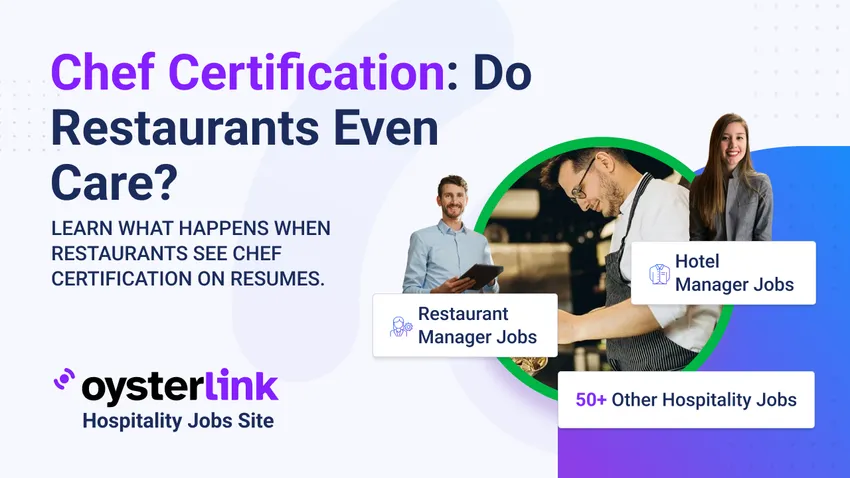Chef certification is one of the most debated credentials in the culinary world.
Some Chefs swear by it, others rely purely on experience — but the truth sits somewhere in between.
This guide breaks down what Chef certification really means, whether restaurants value it and how it can shape your culinary career.
Chef Certification Explained: What It Really Means
Chef certification is a formal credential that validates your cooking skills, kitchen management knowledge and food safety expertise.
While culinary school isn’t mandatory to become a Chef, certification acts as proof that you meet industry standards. It signals professionalism, consistency and readiness to handle responsibility.
Restaurants rarely require certification outright, but when they do, it’s clearly stated in the job description. Even when it’s optional, having one can give you an edge.
Chef Certification Process: How to Become Certified
Earning Chef certification typically involves education, hands-on experience and passing exams.
Most programs are structured to test both your technical cooking skills and your understanding of kitchen operations.
The process isn’t quick, but it’s designed to mirror real-world kitchen demands.
Certification bodies want proof that you can cook, lead and operate safely under pressure.
Culinary Certification Through Education and Training
Many culinary certification programs require formal education through accredited culinary schools or hospitality programs.
These cover essential areas like knife skills, nutrition, food safety and kitchen leadership.
Some Chefs pursue associate or bachelor’s degrees in culinary arts or hospitality management.
While not always mandatory, structured education accelerates skill development and prepares chefs for higher-level roles faster.
Chef Certification and Real Kitchen Experience
Professional kitchen experience is the backbone of chef certification.
Entry-level certifications may require one year of experience, while advanced credentials demand several years in supervisory or leadership roles.
Working in fast-paced restaurants, hotels or catering kitchens sharpens technique, decision-making and teamwork.
The higher the certification, the more emphasis there is on managing people, systems and service quality.
Chef Certification Exams: Written and Practical Tests
Most Chef certification programs include both written and practical exams. Written tests assess knowledge of sanitation, nutrition, safety and kitchen management.
Practical exams are where Chefs truly prove themselves — preparing dishes under time constraints while demonstrating technique, flavor balance and presentation.
Advanced certifications are especially rigorous and simulate real executive-level challenges.
Specialized Chef Certification Options
Beyond general credentials, Chefs can pursue specialized certifications to stand out. These include pastry, Private Chef and food safety certifications.
Specialized culinary certifications open doors to niche roles such as private dining, luxury hotels and cruise lines.
They’re especially valuable for Chefs looking to diversify income or specialize in a specific culinary path.
Food Safety Certification for Chefs
Food safety certification is one of the most practical credentials a Chef can earn. It ensures compliance with health regulations and reduces risk in professional kitchens.
Many employers either prefer or require food safety certification, particularly for leadership roles. It’s often inexpensive, quick to obtain and immediately valuable.
Executive Chef Certification and Career Growth
Executive Chef certification is designed for Chefs leading full-scale kitchen operations. It focuses on leadership, financial management, menu development and team oversight.
While experience alone can land executive roles, certification reinforces credibility. It’s especially useful when applying to high-end restaurants, hotels or corporate kitchens.
Benefits of Chef Certification in the Industry
Chef certification can lead to higher earning potential, faster promotions and broader job opportunities. Certified Chefs often earn more and are considered for leadership roles sooner.
Beyond pay, certification boosts confidence and professional reputation. It also connects chefs to industry networks, mentorship opportunities and continued education.
Chef Certification vs Experience: What Restaurants Care About
Restaurants prioritize skill, reliability and attitude — but certification helps validate those traits. In competitive markets, it can be the deciding factor between two equally experienced candidates.
That said, certification is not a substitute for talent or work ethic. The strongest Chefs combine real-world experience with credentials that support their expertise.












Loading comments...